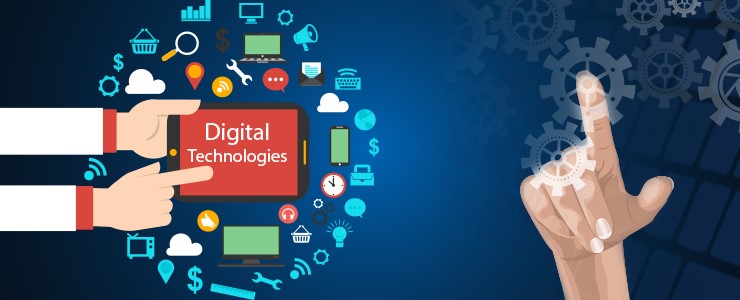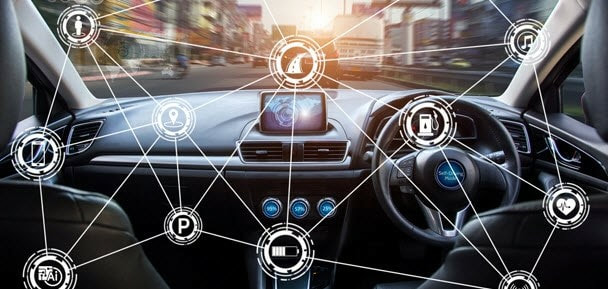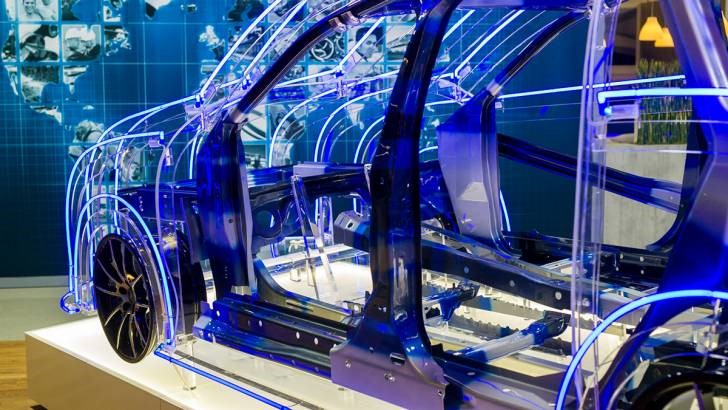Trends in the market are transforming the automotive industry with the change cycle starting with the highly empowered consumer. Customers are now well versed with the digital changes and benefits they offer in all walks of life. For them technology, including cars is not only about the purpose they serve but about a heightened experience.
By 2020 it is believed that the growing digitization and advancement in technology will increase automotive investments to $82 billion. This industry needs to adapt to and deal with a digitally enhanced consumers demands for an enhanced experience while:
- Researching what car to buy
- Purchasing a vehicle
- Operating a car
Source:https://www.forbes.com/sites/danielnewman/2017/07/25/top-6-digital-transformation-trends-in-automotive/
What Does Digital Transformation Involve?
In this era of technological advancements, it is believed that businesses and industries would be vulnerable if they don’t innovate and create new business models. It is not sufficient to take on the latest technologies but it needs to be a process of transformation right from core systems, back end work to future digital visions and goals.
The automotive industry needs to increase their value add not just their level of production. A host of interrelated things can be considered for disruptive or transformational technologies which affect the following:
- Product design
- Sourcing materials
- Manufacturing processes
- Management practices
- Information systems
- Customer expectations and relationships
Unlike other transformations, the automotive industry has more to lose if they do not address the issue of digitization successfully. The strategies adopted need to be well planned and thought out in terms of how processes can be improved and how data analysis can help address customer preferences.
Source: https://www.arcweb.com/blog/digital-transformation-strategies-automotive-sector
Digital Transformation Strategies for the Automotive Sector
For companies wishing to stay ahead of the competition, their operating models will need to be modified so they can take advantage of the new technologies and be successful in this volatile market.
Source: http://www.digitaljournal.com/business/digital-transformation-strategy-for-the-automotive-sector/article/531558
Let us have a look at some key strategies which would benefit the automotive industry:
Automatic Cars
There was a time when this would only be possible in sci-fi movies. However autonomous driving is predicted to be the next normal. GPS, camera sensors and algorithm’s makes it possible for these vehicles to safely navigate all circumstances.
Autonomous vehicles are also believed to be safer than regular cars as they can be controlled remotely and are expected to reduce the accident rates. With no driver, the experience is all about the passenger and extra attention would need to be given to the product design to ensure the customer has a heightened experience.
Transparency and Communication
Personalizing a consumers experience and customizing their demands becomes easier as a digitized supply chain is more connected and leads to an improvement in manufacturing. This helps reduce the costs and engages a consumer.
Digitization allows for more transparency in the supply chain, manufacturing, designing as well as the delivery. Feedback is instant and artificial intelligence makes it possible for any discrepancies to be addressed and dealt with without delay.
Vehicles are also more connected to drivers like their smartphones, tablets and wearable’s. Right from assisted parking to infotainment on the dashboard, the cars need to be ready to satisfy the customer’s expectations.
Predictive Maintenance
Getting an alert or notification in case a part needs to be replaced or maintained can be done automatically and does not need a trip to a garage. Advanced self-diagnostic systems make it possible to alert the driver instantly.
Internet of things allows cars to be monitored remotely and ensure safety, fuel optimization and even monitor everyday safety. It is believed that by 2022, 24% of automotive manufacturers will have smart factories, showing their enthusiasm to translate this transformation with tangible results.
Source:https://www.ge.com/digital/blog/why-automotive-manufacturers-need-kick-digital-transformation-gear
Share a Ride
Private and public car sharing or ride sharing is an element of our daily lives now. For example:
- Uber
- Lyft
Privately owned cars are being used as forms of transit and service oriented. This increases the scope for consumers to save money but could hamper the automotive industry. The companies would need to look at ways to grow in ridesharing, like tying up with tech-companies, in order to maintain their customer loyalty or increase it.
Security
With digitization comes the added threat of cybercrimes. The automotive industry is data driven and smart cars, ride share apps, collect data about the driver or even passenger. Consumers can benefit from this but in the wrong hands this data can be lethal.
Manufactures know and understand the need for added protection and security which is why they need to keep advancing with the latest trends in the digital revolution. Digitization not only increases automation but also introduces new software’s to the industry which the companies must adapt to.
Source: https://www.bearingpoint.com/en/our-expertise/industries/automotive/digital-transformation-in-the-automotive-sector/
Digital Showrooms
The consumer today is well researched before they even enter a showroom to physically look at a car. It is no longer only about the salesman making a pitch regarding features because chances are they not only know the features of that car but of other models as well.
Showrooms now have virtual reality capabilities where only a handful of cars are on display but giant video screens display the relevant information. Virtual reality makes it possible for consumers to know the car inside and out.
Digitized technologies are transforming every aspect of the automotive industry and the connectivity provided is helping bridge the gap between a company and its consumers. It is believed that this is a $0.67 trillion of value at stake for automotive players and a further $3.1 trillion of societal benefits as a result of digital transformation of the industry until 2025.
Source: http://reports.weforum.org/digital-transformation/reinventing-the-wheel-the-digital-transformation-of-the-automotive-industry/
We may still be sometime away from completely autonomous cars but we are soon approaching a time where travel might not require driving at all. If you would like to discuss digital strategies, you can contact the App Scoop mobile app development Vancouver team on https://app-scoop.com/contact-us.html.






